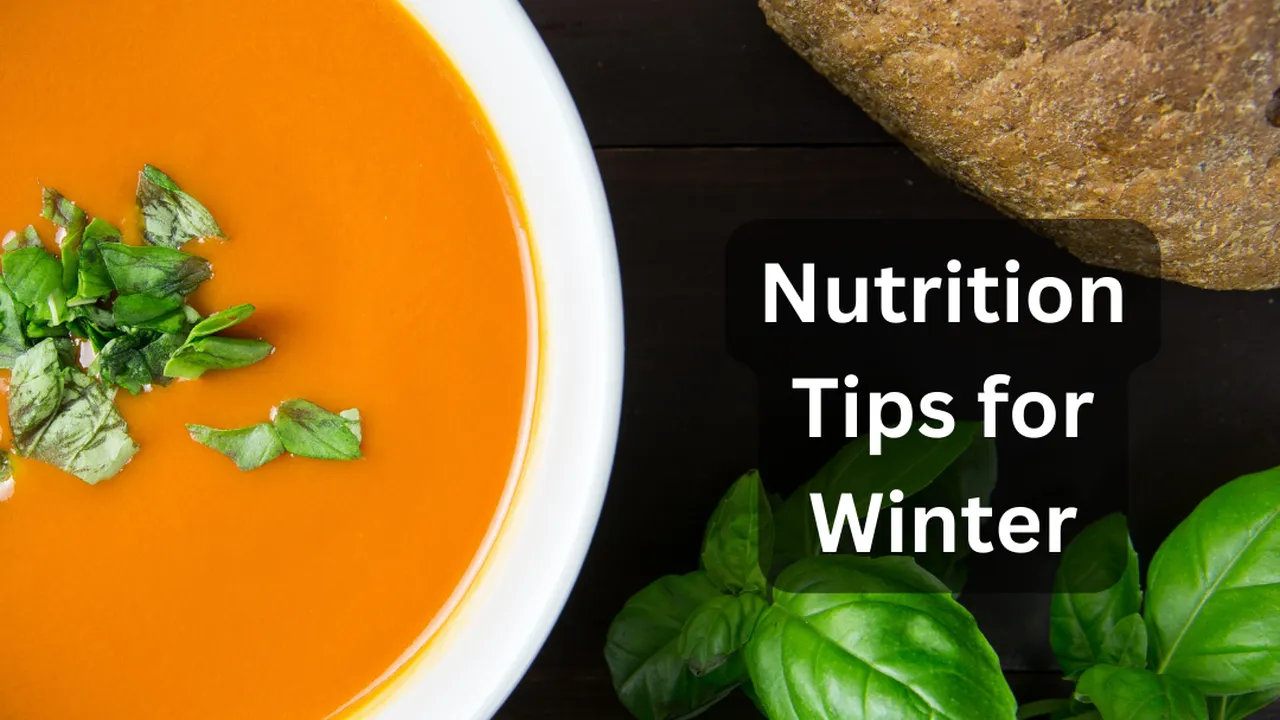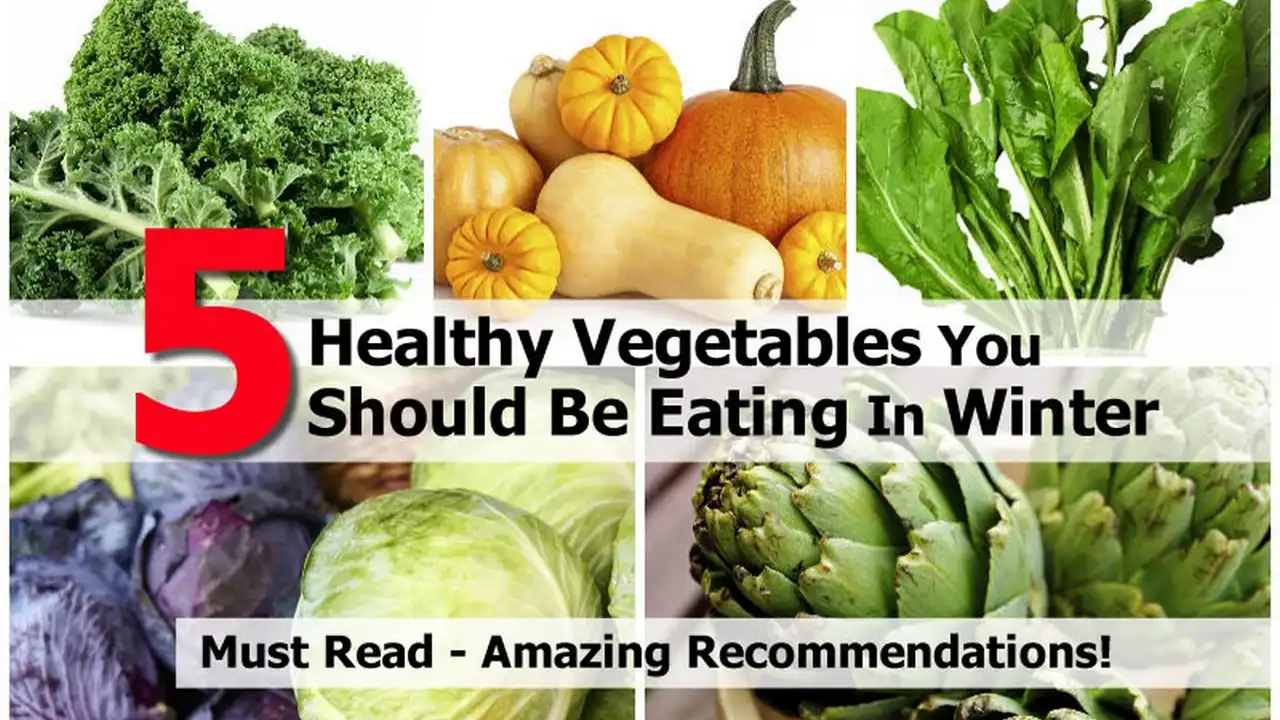
Nutrition for Winter Sports Fueling Your Performance
Hey there, winter sports enthusiasts! Whether you're carving down powdery slopes, cross-country skiing through serene forests, or ice climbing up a frozen waterfall, your body is working hard. Winter sports aren't just fun; they're incredibly demanding on your physical system. And just like you wouldn't take your car on a long road trip without filling up the tank, you shouldn't hit the slopes or trails without properly fueling your body. Good nutrition is your secret weapon for sustained energy, optimal performance, faster recovery, and even staying warm in chilly conditions. Let's dive deep into how to eat and drink your way to a fantastic winter sports season.
Understanding Energy Needs for Winter Sports Athletes
First things first, let's talk about energy. When you're out in the cold, your body burns more calories just to maintain its core temperature, in addition to the energy expended during physical activity. This means your caloric needs during winter sports can be significantly higher than your usual daily intake. Think about it: skiing downhill, snowboarding, snowshoeing, or even just walking through deep snow requires a lot of muscular effort. Your body primarily uses carbohydrates for quick energy during high-intensity activities, while fats provide a more sustained energy source for longer, lower-intensity efforts. Proteins are crucial for muscle repair and recovery, which is super important after a day of pushing your limits.
Calorie Requirements for Skiing Snowboarding and Other Winter Activities
So, how many calories are we talking about? It varies wildly depending on your body weight, the intensity of the activity, and how long you're doing it. For example, a person weighing 150 pounds might burn around 300-600 calories per hour skiing, depending on whether they're cruising on greens or tackling black diamonds. Snowboarding can be similar, while more strenuous activities like cross-country skiing or ice climbing can easily push you past 600-800 calories per hour. This isn't an exact science, but the takeaway is clear: you need to eat more than usual. Don't be afraid to increase your portion sizes and add in extra snacks throughout the day.
Carbohydrates Your Primary Fuel Source for Winter Sports
Carbohydrates are your body's preferred source of energy, especially for those quick bursts of power needed in winter sports. Think of them as high-octane fuel. There are two main types: simple and complex. Simple carbs, like those found in fruit or energy gels, provide a quick energy boost, great for a mid-day pick-me-up. Complex carbs, found in whole grains, vegetables, and legumes, release energy more slowly and steadily, providing sustained power throughout your day on the mountain.
Best Complex Carbohydrates for Sustained Energy
For breakfast, load up on complex carbs. Oatmeal, whole-wheat toast with avocado, or a hearty bowl of quinoa are excellent choices. These will give you a steady release of energy, preventing that mid-morning crash. During the day, think about packing snacks like whole-grain crackers, trail mix with dried fruit, or even a banana. These are easy to eat on the go and will keep your energy levels up.
Quick Energy Boosts Simple Carbohydrates for On-the-Go
When you feel your energy dipping, especially after a few intense runs, a quick hit of simple carbs can be a lifesaver. Energy bars, fruit snacks, or even a small piece of chocolate can provide that immediate boost. Just be mindful not to rely solely on simple carbs, as they can lead to a sugar crash later on.
Proteins Essential for Muscle Repair and Recovery
After a day of intense physical activity, your muscles need some love. Protein is the building block for muscle repair and growth, making it absolutely vital for recovery. Aim to include protein in every meal, especially after your winter sports session.
High Quality Protein Sources for Athletes
Good sources of protein include lean meats (chicken, turkey, beef), fish, eggs, dairy products (Greek yogurt, cottage cheese), legumes (beans, lentils), and nuts. If you're vegetarian or vegan, make sure you're getting a variety of plant-based proteins to ensure you're getting all essential amino acids. A protein shake can also be a convenient way to get a quick dose of protein post-activity.
Protein Timing for Optimal Recovery
Try to consume protein within an hour or two after your activity. This 'anabolic window' is when your muscles are most receptive to nutrients for repair. A meal with a good balance of carbs and protein, like chicken and rice, or a protein smoothie with fruit, is ideal.
Fats Your Long-Lasting Energy Source
While carbs are great for quick energy, fats are your body's long-term fuel storage. They provide a more concentrated source of energy and are essential for absorbing fat-soluble vitamins (A, D, E, K), which are important for overall health and immune function, especially in winter.
Healthy Fats for Sustained Energy and Warmth
Focus on healthy fats like those found in avocados, nuts, seeds, olive oil, and fatty fish like salmon. These fats not only provide sustained energy but also help with insulation, keeping you warmer in cold conditions. A handful of almonds or walnuts can be a great snack, or add some avocado to your sandwich.
Hydration Crucial in Cold Weather
This is a big one that often gets overlooked! You might not feel as thirsty in cold weather, but you're still losing fluids through sweat and respiration (that visible breath you see in the cold air). Dehydration can lead to fatigue, reduced performance, and even increase your risk of frostbite. Staying hydrated is just as important as eating right.
Electrolyte Balance and Preventing Dehydration
Water is your best friend, but for longer or more intense activities, consider adding electrolytes. Sports drinks or electrolyte tablets can help replenish salts lost through sweat. Avoid sugary sodas or excessive caffeine, as they can actually contribute to dehydration. Warm beverages like herbal tea or hot chocolate can also contribute to your fluid intake and provide a comforting warmth.
Recommended Hydration Strategies for Winter Athletes
Start hydrating before you even head out. Drink water consistently throughout the day, even if you don't feel thirsty. Carry a water bottle or hydration pack with you on the slopes or trails. Insulated bottles are great for keeping your water from freezing. Aim for clear or light yellow urine as a sign of good hydration.
Pre-Activity Nutrition What to Eat Before You Go
Your pre-activity meal sets the stage for your performance. Aim for a meal rich in complex carbohydrates, moderate in protein, and low in fat about 2-3 hours before you start. This gives your body time to digest and absorb the nutrients.
Breakfast Ideas for Skiers and Snowboarders
A big bowl of oatmeal with berries and nuts, whole-wheat pancakes with a side of eggs, or a breakfast burrito with beans and veggies are all excellent choices. Avoid anything too heavy or greasy that might cause stomach upset.
During-Activity Nutrition Fueling On the Go
For activities lasting longer than an hour, you'll need to refuel during your session. This is where those quick, easy-to-digest snacks come in handy.
Best Snacks for On-Slope Performance
Think about things you can easily eat with gloves on or while taking a quick break. Energy bars, fruit (bananas, oranges), dried fruit, small sandwiches, or even a handful of trail mix are perfect. Some people like energy gels or chews for a quick sugar hit. Remember to keep them in an inner pocket to prevent them from freezing solid!
Post-Activity Nutrition Recovery and Repair
The recovery meal is just as important as your pre-activity fuel. This is when your body starts to repair muscle tissue and replenish glycogen stores. Aim for a meal with a good balance of carbohydrates and protein within an hour or two after you finish.
Recovery Meal Ideas for Winter Sports Enthusiasts
A hearty chili, a chicken and vegetable stir-fry, a salmon fillet with sweet potato, or a lentil soup are all great options. Don't forget to rehydrate! Water, milk, or a recovery drink can help.
Specific Product Recommendations for Winter Sports Nutrition
Okay, let's get into some specific products that can help you optimize your nutrition for winter sports. Remember, everyone's body is different, so what works for one person might not work for another. It's always a good idea to try new products during training or less intense days before relying on them for a big adventure.
Energy Bars and Gels for Quick Fuel
These are super convenient for on-the-go fueling. They're designed to be easily digestible and provide a quick hit of carbohydrates.
- GU Energy Gels: These are a classic for a reason. They're small, easy to open, and provide about 100 calories of quick-acting carbohydrates. They come in a ton of flavors, some with added caffeine for an extra kick. They're great for a quick boost during a long run or between laps.
- Clif Bar: A more substantial energy bar, Clif Bars offer a good mix of complex carbohydrates, protein, and fiber. They're great for a mid-morning snack or a mini-meal on the chairlift. They're a bit chewier than gels, so make sure you have time to eat it.
- Honey Stinger Waffles: These are a delicious and easy-to-digest option. They're like a thin, soft waffle and provide a good amount of carbohydrates. They're less dense than a traditional energy bar and can be a nice change of pace.
Hydration Solutions and Electrolyte Mixes
Staying hydrated is key, and sometimes water alone isn't enough, especially if you're sweating a lot.
- Nuun Sport Electrolyte Tablets: These effervescent tablets dissolve in water, providing electrolytes without a lot of sugar. They're super portable and come in various flavors. Great for adding to your water bottle throughout the day.
- Skratch Labs Hydration Mix: This mix is designed with a more natural ingredient list and a balanced electrolyte profile. It's less sweet than many traditional sports drinks and aims to be gentle on the stomach. Good for longer days or if you're prone to stomach issues with other sports drinks.
- CamelBak Eddy+ Insulated Water Bottle: While not a supplement, a good insulated water bottle is crucial. This one keeps your water from freezing and has a convenient bite valve. Staying hydrated is easier when your water isn't a block of ice!
Recovery Drinks and Protein Supplements
After a hard day, getting protein and carbs in quickly can make a big difference in how you feel the next morning.
- Optimum Nutrition Gold Standard 100% Whey Protein: A widely recognized and trusted protein powder. Mix it with water or milk for a quick post-activity protein hit. It's great for muscle repair and comes in many flavors.
- Garden of Life Sport Organic Plant-Based Protein: For those who prefer plant-based options, this protein powder offers a complete amino acid profile. It's easy to digest and can be blended into smoothies with fruit for a carb-protein combo.
- Gnarly Nutrition Fuel2O: This product is designed as an all-in-one fuel and recovery drink, providing both carbohydrates and protein. It's convenient for mixing into a bottle and sipping on your way back from the mountain.
Comparing Products and Usage Scenarios
Let's look at how these products fit into different winter sports scenarios and compare their benefits.
Scenario 1: A Full Day of Downhill Skiing or Snowboarding
Morning Fuel: Start with a hearty breakfast of oatmeal or eggs and toast. You want complex carbs for sustained energy.
On-Slope Snacks: Pack a Clif Bar or Honey Stinger Waffles for a mid-morning snack. Keep a few GU Energy Gels in your pocket for quick boosts before or after a challenging run. A banana is also excellent.
Hydration: Carry an insulated water bottle with Nuun Sport tablets or Skratch Labs mix. Sip regularly on the chairlift or during breaks. Aim to drink at least 1-2 liters throughout the day.
Lunch: Opt for something balanced like a sandwich with lean protein, a bowl of chili, or a hearty soup. Avoid heavy, greasy foods that will make you feel sluggish.
Post-Activity: Within an hour of finishing, have a protein shake (Optimum Nutrition or Garden of Life) or a recovery drink like Gnarly Fuel2O. Follow up with a balanced dinner rich in protein and complex carbs.
Scenario 2: Backcountry Skiing or Snowshoeing (Longer, More Strenuous)
Morning Fuel: A substantial breakfast is even more critical here. Think a large bowl of steel-cut oats with nuts and seeds, or a breakfast burrito with eggs, beans, and cheese.
On-Trail Snacks: You'll need more frequent fueling. Pack a variety: Clif Bars, Honey Stinger Waffles, dried fruit, nuts, and several GU Energy Gels. Consider packing some small, savory snacks like jerky or cheese sticks for variety and electrolytes.
Hydration: A hydration pack is almost essential for backcountry. Fill it with water and add Nuun or Skratch Labs mix. You'll be sweating more, so consistent hydration is paramount. Consider bringing a small thermos of hot tea or broth for warmth and hydration.
Lunch: A packed lunch is a must. Sandwiches, wraps, or even a small thermos of hot soup are good options. Something easy to eat in cold conditions.
Post-Activity: Immediately after, a recovery drink (Gnarly Fuel2O) or a protein shake is highly recommended. Your muscles will be screaming for nutrients. A large, balanced dinner with plenty of protein and carbs is crucial for full recovery.
Scenario 3: Casual Ice Skating or Winter Hiking (Moderate Intensity)
Morning Fuel: A regular, balanced breakfast should suffice. Yogurt with granola and fruit, or toast with eggs.
On-Activity Snacks: A piece of fruit (apple, orange) or a small energy bar (like a KIND bar) should be enough for a few hours of activity. You might not need gels unless you're pushing the intensity.
Hydration: A regular water bottle will likely be fine. Sip water regularly. Electrolyte drinks are probably not necessary unless it's a very long or warm day.
Post-Activity: A normal, balanced meal should be sufficient for recovery. No special supplements are likely needed unless you feel particularly fatigued.
Pricing and Availability Considerations
The good news is that most of these products are widely available. You can find them at outdoor gear stores, large supermarkets, health food stores, and of course, online retailers like Amazon, REI, or directly from the brand websites.
- GU Energy Gels: Typically sold in packs of 8 or 24. A single gel usually costs around $1.50 - $2.00.
- Clif Bars: Very affordable, often around $1.00 - $1.50 per bar, and available almost everywhere.
- Honey Stinger Waffles: A bit pricier than Clif Bars, usually $1.50 - $2.00 per waffle.
- Nuun Sport Electrolyte Tablets: A tube of 10-12 tablets usually costs around $7.00 - $8.00.
- Skratch Labs Hydration Mix: A large bag (20 servings) can be around $20.00 - $25.00. Individual serving packets are also available.
- Optimum Nutrition Gold Standard 100% Whey Protein: A 2-pound tub (around 29 servings) typically ranges from $30.00 - $40.00, making it quite cost-effective per serving.
- Garden of Life Sport Organic Plant-Based Protein: Similar pricing to whey protein, often $35.00 - $45.00 for a comparable size.
- Gnarly Nutrition Fuel2O: A bag (15 servings) is usually in the $30.00 - $35.00 range.
- CamelBak Eddy+ Insulated Water Bottle: Prices vary by size, but generally $15.00 - $25.00.
While some of these specialized products might seem a bit expensive, consider them an investment in your performance and recovery. For casual outings, whole foods are often sufficient and more budget-friendly. For more intense or multi-day adventures, these products can be incredibly valuable.
General Tips for Winter Sports Nutrition
Beyond specific products, here are some overarching tips to keep in mind:
Listen to Your Body and Adjust Intake
Everyone is different. Pay attention to your hunger cues and energy levels. If you're feeling sluggish, you might need more carbs. If you're constantly hungry, you might need more calories overall. Don't be afraid to experiment and find what works best for you.
Don't Skip Meals Especially Breakfast
Skipping meals, especially breakfast, is a recipe for disaster when you're doing winter sports. Your body needs that consistent fuel to perform and stay warm.
Pack Smart for On-the-Go Fueling
Choose snacks that are easy to eat in cold weather, won't freeze solid, and are relatively mess-free. Ziploc bags are your friend!
Consider Warm Beverages for Hydration and Comfort
Hot chocolate, herbal tea, or even warm broth can be incredibly comforting and contribute to your hydration goals. A small thermos can keep them warm for hours.
Prioritize Whole Foods When Possible
While supplements and energy products have their place, the foundation of good nutrition should always be whole, unprocessed foods. They provide a wider range of nutrients and fiber.
By paying attention to your nutrition and hydration, you'll not only perform better on the slopes or trails but also recover faster, stay warmer, and enjoy your winter adventures to the fullest. So, fuel up, stay hydrated, and have an amazing time out there!
:max_bytes(150000):strip_icc()/277019-baked-pork-chops-with-cream-of-mushroom-soup-DDMFS-beauty-4x3-BG-7505-5762b731cf30447d9cbbbbbf387beafa.jpg)






